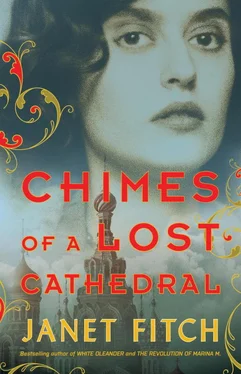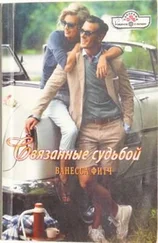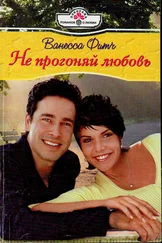“Why not?” He shrugged. “You can’t fight Soviet power.”
And leave a village without its midwife? Shoot her right there from the agit-train? Well, that would certainly change people’s minds about the Red cause. Another contraction drove my back into barbed wire. I didn’t want to give birth on this train. Better some old lady’s izba. “Take me to her.” I sat up, tried to rise, but my legs refused to hold me. I sank back down to the bench, but still upright, clutching Genya, shivering in the heat, sicker than I’d ever been in my life. “Take me.”
“The hell with these ignorant peasants,” Genya said, his jaw dangerously flexed. I knew that face, that mulish expression. He was getting his back up. “You know what it’ll be like—priests and icons, holy water. Who knows what they’ll do to you to punish you for being with us.”
I was willing to take my chances. “Genya, sometimes other people know something too. Now help me!”
Reluctantly, he helped me stand, then lifted me in his arms. The sailor led the way. Matvei and a sparsely bearded little muzhik waited by a bony horse attached to a cart. In the cart, a woman in a white kerchief sat stiffly next to one of our Red soldiers, a rifle casually at his side. She sat firm in her seat. If she was frightened, she gave no indication. She was a big woman, square shouldered, in a blue apron, her face pockmarked, wide boned, a rock of defiance. You could have ironed a shirt on her back, it was so broad and straight. She could have been fifty, she could have been ninety.
Genya sighed. “You’d really go with her?”
“Help me up.”
With one last baleful look, he lifted me up to the soldier, who settled me into the seat next to the midwife. Genya started to climb in after me.
“Nyet,” said the old woman, gesturing no with one wagging finger. “Not you.”
“I’m not letting her out of my sight,” he said.
“Not you,” she said again.
“This is my husband,” I tried to explain. I began to tremble again. I hadn’t been upright this long since Izhevsk. The blood surged in my head.
She put her hand on my forehead, a strong hand, cool and steady. I wanted her to leave it there forever. “You’re ill. A fever. How long?”
Just the sound of her calm, sure voice brought tears to my eyes, that hand, just like Avdokia’s. “A week, I think.”
“Has the water come?” I nodded. “How long ago?”
It was hard to say if it was five hours or fifteen. “Maybe noon.”
“And the suzheniya ?” Contractions. “How far apart?” She was very abrupt, but I could see her knowledge struggling with her loathing of us, her deep-seated purpose to bring life into the world getting the upper hand.
“Twenty minutes, thirty. It’s my back.” I started to cry.
She was nodding coolly. She’d seen all of this before. I loved her already. “And when was your last confession?”
Suddenly Genya was there, grabbing the old lady’s blouse like he was going to punch her, yelling in her face with his mighty lungs, “What difference does that make? You old fool! Who cares? No—we’re not doing this. It’s insane. Marina—”
“A long time,” I told her.
“We should get started,” the old lady said.
“No. I forbid it. Marina, you can’t let her—”
The midwife raised her voice, it was clear, and hard. “Your wife is ill, she’s fevered, she’s already in danger. She’s been sick for a week. You call me insane? You people aren’t human, you’re animals.”
Grigory from Krasnaya Gazeta ran out of the train car. “Kuriakin, it’s good news. The 3rd Army has just taken Perm. The track’s open.”
I heard Marfa Yermilova’s voice, sharp. “It’s what we’ve been waiting for.”
Other voices. Clamoring, all at once, like seagulls.
“Can you just give me a minute!” Genya roared, and knit his fingers atop his head, as if things were falling on it. “Just a minute!” He turned back to the old lady. “Anything happens to her, I swear, I’ll kill you.”
“If God wills it, so it shall be.”
He howled as if it were he, not I, who was experiencing the deep pain of labor. He grabbed his head like it was on fire. “That’s it,” he shouted at her, scrambling up into the wagon. “You go to your good Christian hell, all right? And take your piousness with you.” He was lifting me up. “I’m not leaving my wife with you.”
“Stop it, Genya!” I fought him like an animal, wrenching myself from his grip. “I need her. I can’t do this alone! Put me down!” I didn’t know where I got the energy, but I arched and twisted like a cat. He had to put me down or drop me.
He clutched his head like it was filling with demons. “What are you talking about? You’re not alone. Look! You have me, you have all of us!” And he waved his hand toward the comrades of our train, Matvei and Antyushin, Grigory, Dutkov the printer, Slava, Apollonia, Aksakov, Marfa Yermilova, Kostya from Pravda, an entire audience smoking, watching our drama. All his spacemen, his propagandists and theoreticians, actors. I’d give all of them for one old baba who could safely deliver my child. I didn’t care how many icons I’d have to kiss. Maybe I’d want to kiss them. I had stopped knowing who I was or what I wanted. I just wanted to get out of the sight of all these people staring at me and suffer my pain in peace and get this baby out.
“Your wife is very ill,” the midwife said to my panicked Genya, speaking slowly and clearly as if he were deaf, as if he would have to read the words on her lips. “She could die. I don’t think she will, but it’s in the hands of God. I can do more for her than you can, of that I’m sure.”
I could die. I don’t think I really believed it until she said it, right out loud. I was sick, but I didn’t realize how sick, and now the baby was coming. My terror rose into my throat like vomit. It coiled up my spine.
“I’ll kill you myself if you let her die,” he said, pointing at her, right at her upturned nose, as if he would stab her with the spear of his finger. “I swear to you. I’ll come back and burn your whole village.”
I went into a spasm of labor, and laid my head in her lap, clutching her apron. “Let’s go.”
The old lady held me, held me hard, pressing my back with her fist, right where it was breaking, splitting in two. I groaned loud enough for everyone on that train to hear. “Pray,” said the midwife. “Pray to Theotokos. Save me, Holy Mother of God .” After all my life with Avdokia, I knew that prayer like a song. I whispered it along with her: “O my All-Gracious Queen Theotokos, my hope who befriends orphans and intercedes for strangers, joy of those who sorrow, protectress of those offended…” And the words rushed over me like a stream. They soothed me. If I couldn’t have Avdokia here with me now, I had this solid peasant woman, and the prayer gave me some human sounds to utter. “Look upon my troubles and see my sorrow. Help me for I am weak. Guide me for I am wandering. For you know my offense. Resolve it as you will, for I have no other help than you, no other intercessor nor good comforter, only you. O Mother of God, may you keep and protect me, unto the ages of ages, Amen.”
“Amen,” I choked out. She held me and started over again, submerging me in the steady flow of those old words, like an ancient poem, firm in the center, prayed until the cramping left me. “Where’s Genya?” I gasped.
“He’s right there, by the train.”
I sat up and, yes, there he was, with the others, half listening to Marfa Yermilova, half turned from the cart, crushing his cap in his fist, trying not to look at me. Lot’s husband. Poor Genya couldn’t bear to see anyone suffer. I recalled the night we spent with the thief, in the little room on Grivtsova Alley.
Читать дальше












